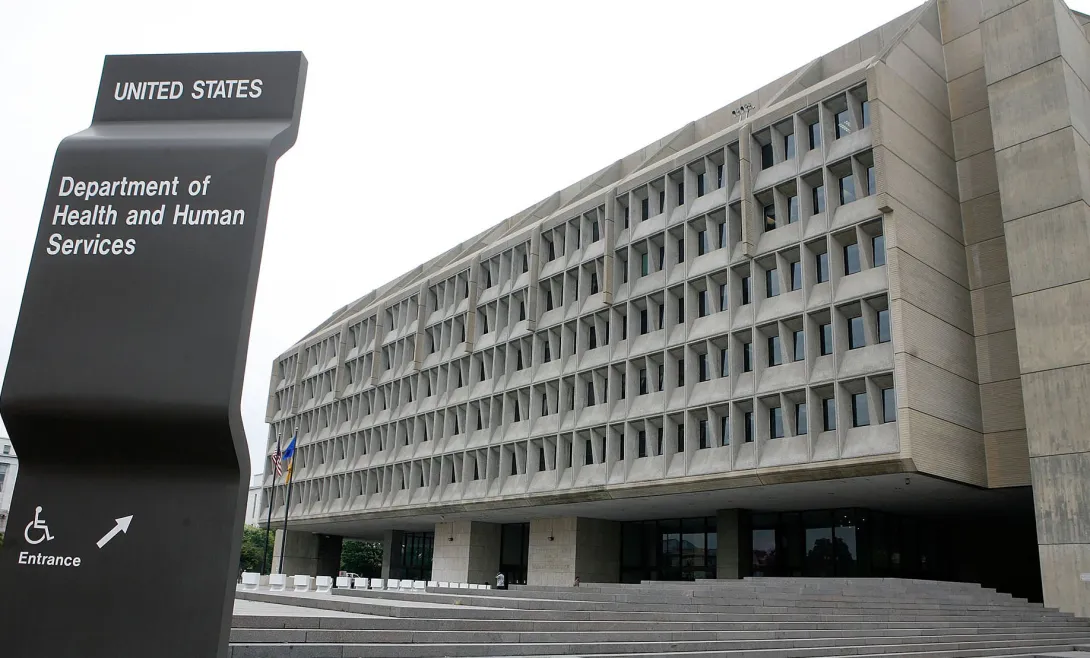
Photo: Alex Wong/Getty Images
The Centers for Medicare and Medicaid Services on Friday issued a 2026 Medicare Advantage and Part D final rule that makes changes to authorization decisions.
One provision restricts a plan's ability to reopen and modify a previously approved inpatient hospital decision on the basis of information gathered after the approval. MA plans will only be able to reopen an approved admission for obvious error or fraud, CMS said.
If a plan approves an inpatient admission, it will have to honor the prior authorization, CMS said.
Another provision closes MA appeals loopholes by clarifying that the definition of "organization determination" – decisions that are subject to MA appeal and notification requirements – includes MA plan decisions made concurrent to the enrollee's receipt of services.
This clarification ensures that MA appeals rules apply to adverse plan decisions, regardless of whether the decision is made before, after, or during the receipt of services, CMS said.
It does not include anti-obesity drug coverage as proposed under the Biden administration in November 2024.
WHY THIS MATTERS
Other final rules include:
- A modification to existing regulations to clarify that an enrollee's liability to pay for services cannot be determined until an MA organization makes a decision on a contracted provider's claim for payment. This clarification will ensure that an enrollee always has the right to appeal MA plan coverage denials that affect their ongoing course of treatment.
- A codification to existing guidance that requires plans to give a provider notice of a coverage decision. It also requires plans to notify the enrollee, whenever the provider submits a request on behalf of an enrollee.
- There is no cost sharing for an adult vaccine recommended by the Advisory Committee on Immunization Practices (ACIP) and covered under Part D.
- The cost-sharing amount for insulin is kept to a maximum of $35.
- Beginning in 2025, the Medicare Prescription Payment Plan requires all Medicare Prescription Drug Plans (Part D plans) – including both stand-alone Medicare PDPs and MA-PDs – to offer Part D enrollees the option to pay their out-of-pocket (OOP) prescription drug costs in the form of monthly payments over the course of the year.
CMS is not finalizing the proposed requirement for Part D sponsors to ensure that pharmacies are prepared to inform Part D enrollees of the actual OOP cost of a Part D prescription at the pharmacy point of sale. This, CMS said, is in response to comments that the OOP cost information is already provided to pharmacies through claims processing. CMS continues to encourage pharmacies to provide OOP costs to participants verbally upon request.
THE LARGER TREND
The rule affects Medicare Advantage, Medicare Prescription Drug Benefit (Part D), Medicare cost plan and Programs of All-Inclusive Care for the Elderly (PACE) programs.
It implements changes to prescription drug coverage, the Medicare Prescription Payment Plan, dual eligible special needs plans (D-SNPs), Medicare Advantage star ratings and the Medicare Drug Price Negotiation Program.
In its final rule, CMS did not finalize certain aspects of the proposed rule.
It excludes guardrails for artificial intelligence in MA and health equity analysis and equitable access to Medicare Advantage services.
"CMS may address these proposals in future rulemaking, as appropriate," the agency said.
For more information on the final rule, visit CMS.gov.
ON THE RECORD
"Premier applauds the Centers for Medicare & Medicaid Services (CMS) final rule for closing loopholes and games played by Medicare Advantage payers that left unchecked place Medicare beneficiaries in a continual nightmarish loop of prior authorization," said Soumi Saha, senior vice president, Government Affairs, Premier. "Premier is especially thrilled to see CMS crack down on plans' ability to retroactively deny approved hospital stays--because once medically necessary care is given, it shouldn't be up for debate."
Better Medicare Alliance applauded what it called CMS' "measured approach." "With millions of Medicare Advantage beneficiaries still facing significant impacts from two years of Medicare Advantage cuts and other policy changes, this is the right decision to protect seniors and the Medicare Advantage program," said President and CEO Mary Beth Donahue.
Email the writer: SMorse@himss.org